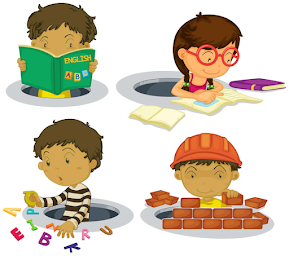The importance of reading skills in childhood
The issue of literacy is very important in education. Previously, experts did not consider reading skills an important factor for growth and healthy development in childhood.
The obvious thing is that the child begins a new phase in his life with access to reading. Reading is a cognitive resource by nature that provides information and imparts knowledge to children. Reading creates habits that help with reflection, analysis, effort, concentration, entertainment, and avoidance. But after this, let's now talk about the importance of reading skills in childhood.
The main reasons to read in childhood
Reading at an early age is important because it helps train future readers so they can enjoy reading and develop skills and knowledge through it. Even if your child is illiterate, it is recommended that you listen to what he has to say, as if you were reading to him. That way, you get used to the different sounds and rhythms of the sounds, the sentence structure, and the language's pronunciation.
One reason for the importance of reading skills is that reading develops and improves language, vocabulary, and spelling. It is a unique intellectual tool because it mobilizes mental functions that sharpen the intellect.
Reading also encourages effort that is never passive. It requires a determined attitude where the boy or girl who reads becomes part of the text. At the same time stimulates attention and forces concentration, developing creativity and imagination. Reading the right books promotes the positive values a child needs to know.
The importance of writing in childhood
Writing as a will requires a will. It allows the boy or girl to organize and shape their thoughts and sometimes emotions. Writing is the first step to expressing broader ideas. Writing is a symbolic function that a child receives. That is, they acquire the ability to understand and express.
Development of psychomotor skills with writing, ability to control motor activities. There is also the acquisition of sound perception and literacy. It can transcribe sound to the alphabet letter and process the reverse: from spelling to sound.
However, keep in mind that childhood writing goes through different stages in the learning process. These steps can be started before schooling. It talks about:
The phase of different writing. Authors of Lifetime.
Different writing phase. Grades are reproduced by imitation, but they do not know.
Theater syllable. Although children already refer to the same letters, children have already begun to explain the sound of words with their graphics.
Theatrical syllable alphabet. Although it is common to skip letters, they start writing some words.
Theater character. At this stage, they can already write whole words according to their sound, but they do not have spelling skills.
Why should we improve reading skills in childhood?
Literacy is a basic practice, hence the importance at the cognitive and influence level. It is learned through a comprehensive, dynamic and structured process that requires the practice of skills such as reflective observation, identification, comparison, classification, problem-solving, analysis, generalization, and others. These skills and abilities need to be developed by children early.
There is no definitive profile that guarantees that a child is completely ready to learn to read or write. Still, various research suggests that appropriate abilities can be expressed at the age of 6 years as long as enough stimulation for the baby.
In previous years, children were ready to learn in elementary education or preschool education. This aspect of education is called readiness and includes preparatory exercises for literacy.
Also Read: The Soft Roots











0 Comments